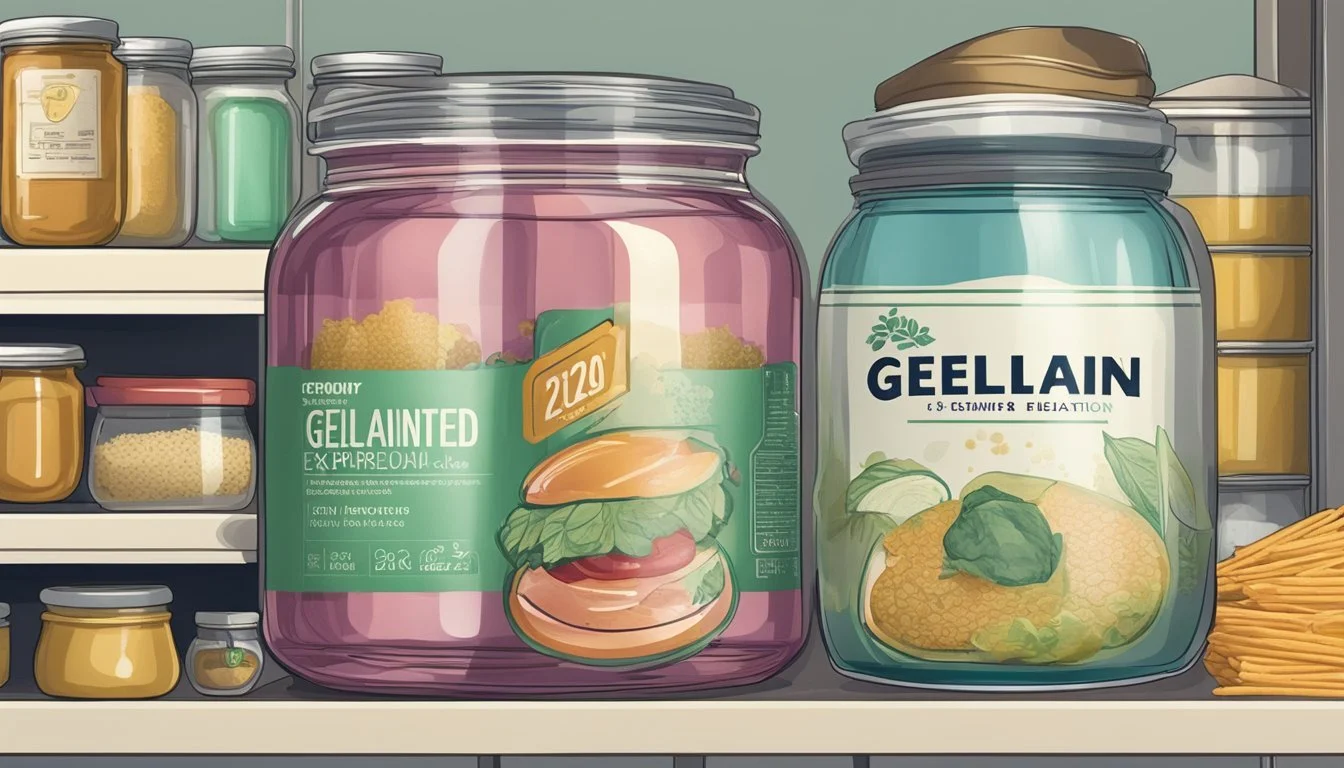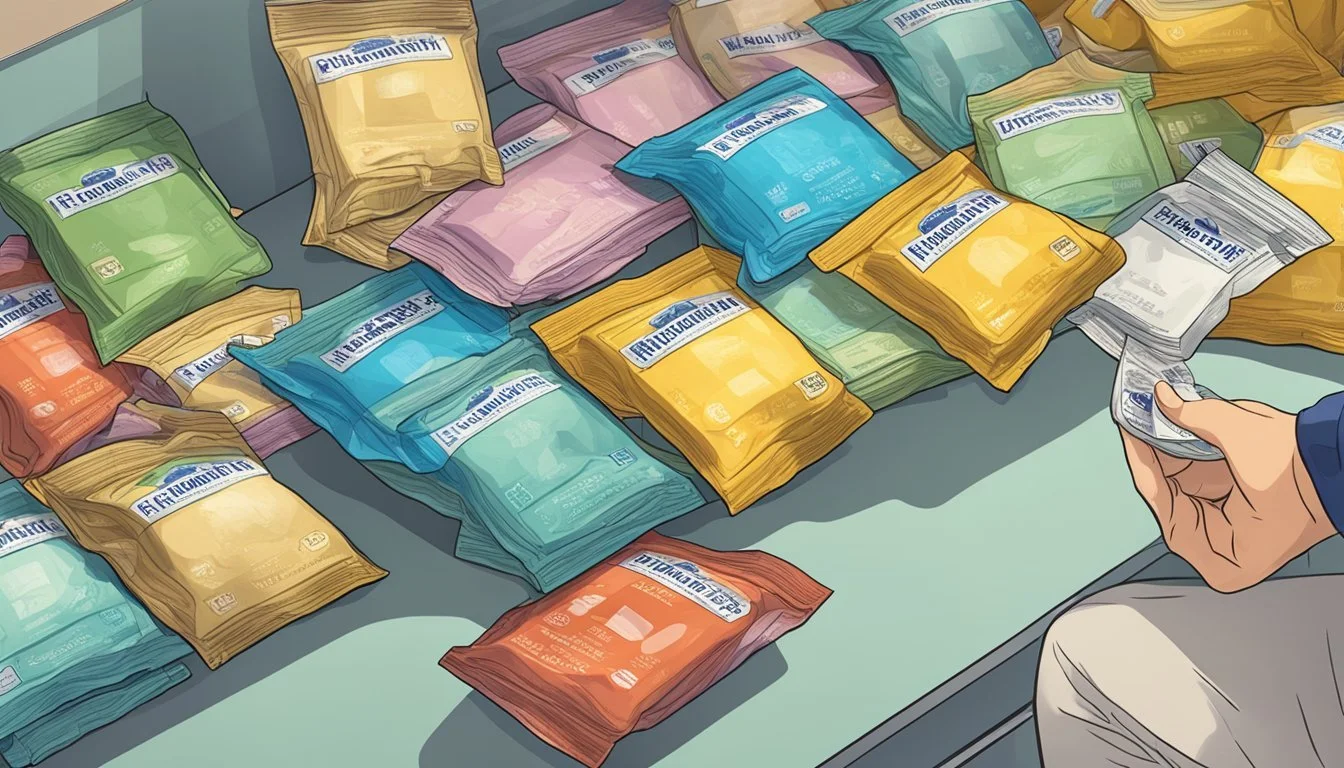Is it Safe to Use Expired Gelatin?
Understanding the Risks and Guidelines
Gelatin, a protein derived from collagen, is widely used in the food industry and home cooking as a gelling agent for desserts and other dishes. As with most food products, gelatin comes with an expiration date, which often leads to concerns regarding its safety and efficacy past that date. The question of whether it is safe to use expired gelatin hinges on the understanding of how it is stored and the signs of spoilage that consumers should look for.
Understanding the properties of gelatin is crucial. It is inherently stable and does not contain water in its dry form, which minimizes bacterial growth and extends its shelf life. Nevertheless, proper storage is imperative to maintain gelatin's quality; it should be kept in a cool, dry place away from light and moisture. Manufacturers provide an expiration date to indicate the period during which they can guarantee the product's optimal quality.
The risks associated with using expired gelatin are generally low, but assessing its condition before use is vital. An unopened packet of gelatin from a well-maintained pantry may last beyond its expiration date, but one should always inspect for unusual odor, discoloration, or evidence of moisture, which are clear indicators that the gelatin should not be used. When it comes to safety and quality, using gelatin within its recommended shelf life ensures the best results for culinary applications.
Understanding Gelatin and Its Shelf Life
Gelatin, a protein derived from collagen, has a nuanced shelf life influenced by various storage conditions. The reader should know how these factors can prolong or reduce gelatin's effectiveness and suitability for use.
The Basics of Gelatin
Gelatin is a translucent, flavorless food ingredient, commonly derived from animal body parts. This protein-rich substance is used in numerous culinary applications due to its ability to gel, thicken, or stabilize foods. Gelatin's shelf life, when referring to its dry form, typically extends to 2-3 years from the manufacturing date. The expiration date marked on the packaging is a guide to its optimal quality.
Pantry Storage: Unopened gelatin should be stored in a pantry or similar cool, dry environment.
Airtight Container: If transferred from the original packet, use an airtight container to maintain dryness and potency.
Factors Affecting Gelatin Shelf Life
The longevity of gelatin's usability is contingent upon its storage conditions. Dry gelatin can remain stable and retain its gelling properties beyond its expiry date if stored properly, whereas prepared gelatin, or gelatin dishes, must be consumed within a shorter timeframe and kept refrigerated.
Storage Conditions:
Temperature: It should be kept away from heat sources.
Light: Store away from direct sunlight to prevent breakdown.
Moisture: Humidity can degrade gelatin, influencing its gelling efficacy.
Proper storage is key to maintaining gelatin's potency and ensuring it remains safe for use beyond its printed expiration date. However, if the properties have noticeably changed, such as odor or appearance, the gelatin should not be used.
Proper Storage Methods for Gelatin
To ensure the quality and safety of gelatin, proper storage is essential. Gelatin's shelf life can be maximized by adhering to recommended storage practices for both its dry form and prepared dishes.
Storing Dry Gelatin Powder
When storing dry gelatin powder, one should keep it in a cool, dry place, such as a pantry. It is essential to use airtight containers to protect it from moisture and other contaminants. These measures help maintain the gelatin's quality until the expiration date stamped on the package.
Preserving Homemade Gelatin Foods
Homemade gelatin dishes should be stored in the refrigerator as soon as they set. Cover them with plastic wrap or store them in airtight containers to prevent the absorption of other food odors and to maintain moisture levels. This practice will typically keep homemade gelatin fresh for up to 3-4 days.
Refrigeration and Freezing Techniques
Refrigerator storage is crucial for maintaining the freshness of gelatin dishes. If longer storage is needed, freezing is an option, though it can slightly alter the texture. When freezing gelatin, it's best to use freezer-safe containers or ziplock bags. Thaw frozen gelatin in the refrigerator before consumption to ensure even temperature distribution.
Identifying Expired Gelatin
When assessing whether gelatin has expired, one should examine its color and texture, smell, and look for any visible signs of spoilage such as mold.
Changes in Color and Texture
Expired gelatin may exhibit changes in color, becoming either faded or darker than its original hue. If the powder begins to clump together or the texture appears grainy, this could indicate that it has absorbed moisture and is no longer in optimal condition.
Odor and Flavor Alterations
Gelatin that has an off odor or an abnormal taste during a taste test could be past its prime. Any sour or otherwise unpleasant smell is a clear sign that the gelatin should not be used.
Mold and Spoilage Signs
Visible signs of mold, such as fuzzy or slimy spots, clearly reveal spoilage. When gelatin develops such spoilage signs, one must discard it immediately to avoid potential health risks.
Assessing the Safety of Using Expired Gelatin
When considering the use of expired gelatin, it is crucial to evaluate both the potential risks and the food safety guidelines to make an informed decision on its consumption.
Risks of Consuming Expired Gelatin
Expired gelatin may pose risks to safety, particularly if not stored correctly. Dry gelatin should be kept in a cool, dry area to prevent the growth of bacteria that could lead to foodborne illnesses. If the package is damaged or the seal is broken, exposure to moisture and contaminants is likely, increasing the risk of spoilage.
Unopened dry gelatin can last beyond its expiry, but effectiveness may reduce over time.
Opened dry gelatin should be used within three months to mitigate potential risks.
Signs of bad gelatin include an off smell, discoloration, or the presence of moisture.
If these signs are present, the gelatin should not be consumed.
Food Safety and Health Implications
The health implications of consuming expired gelatin relate to the potential for food safety breaches. Gelatin that is past its expiration date may not always be harmful if it remains dry, sealed, and stored properly, but the margin for error is reduced.
Unflavored gelatin past expiry used in food applications should be approached with caution as it may not set properly, affecting both texture and presentation.
For individuals with compromised immune systems, it is especially important to avoid expired items, as they are more susceptible to the potential bacterial growth in compromised food products.
In terms of overall health, fresh, properly stored gelatin can contribute to a healthy diet, potentially benefitting skin health, but these benefits cannot be assured if the gelatin is expired and the efficacy has degraded.
To maintain the highest standards of food safety and personal health, adhering to expiration dates and proper storage recommendations is advised.
Impact of Expired Gelatin on Food Quality
When using expired gelatin, one might notice changes in the quality and taste of the final product. These effects vary depending on the food item.
Effect on Gelatin Desserts and Snacks
Expired gelatin may compromise the quality and texture of gelatin-based desserts and snacks. These items, which include jelly, gelatin snacks, and gummy bears, rely on the gelling agent to achieve a specific firmness and chewiness. Once gelatin has passed its expiration date, its gelling power diminishes, leading to desserts and snacks that may be softer or fail to set properly. This can result in a texture not intended for the recipe, which is a critical aspect of these items' appeal.
Quality of Gelatin in Recipes
In recipes where gelatin acts as a secondary ingredient, its role is often to aid in thickening or stabilization rather than to impart flavor. However, the quality of expired gelatin can impact the final dish. An expired gelatin may produce a less stable structure in candies or a sauce that fails to reach the desired consistency. While there is no inherent health risk in using gelatin past its expiration date, it is essential to consider that the outcome could affect the flavor and quality of the recipe, potentially leading to less satisfying results.
Tips for Extending the Life of Gelatin
To maximize the longevity of gelatin and maintain its freshness, proper storage techniques and effective date tracking are essential.
Labeling and Date Tracking
One should diligently label gelatin packages with the date of purchase and estimated expiration date. Utilizing markers to add labels directly to the packaging or to tags on glass or dark, airtight containers can significantly reduce the risk of using expired gelatin. This practice helps in monitoring its shelf life and ensures the use of the product while it's still effective.
Example Label Format:
Purchased On: [MM/DD/YYYY]
Best By: [MM/DD/YYYY]
Optimal Storage Tips
Gelatin should be stored in a cool, dry place away from sources of heat and sunlight. To preserve its freshness, one can transfer the gelatin from its original packaging to an airtight container, which can be either glass or plastic, to prevent moisture and odors from compromising its quality.
Storage Checklist:
Keep gelatin in a dark, temperature-controlled pantry.
Use an airtight container to ward off moisture.
If using original packaging, ensure it’s resealable; otherwise, transfer gelatin to a sealable glass or plastic container.
Store away from strong-smelling foods to avoid odor absorption.
By following these guidelines, one can significantly extend the usable life of gelatin, safeguarding both its gelling abilities and the quality of the culinary creations it's used in.
Frequently Asked Questions About Gelatin
In this section, readers will find authoritative answers to common inquiries about gelatin, including its types, storage, and usage beyond the expiration or best-by date.
Addressing Common Gelatin Queries
Can gelatin expire, and is it safe to consume after the expiration date?
Unflavored and flavored gelatin typically comes with a best-by date, and it's generally considered safe to consume past this date if stored properly -- cool, dry conditions away from sunlight. While the best-by date is an indicator of optimal quality, gelatin's stable nature means it can often be used without issue even after this date.
What is the difference between expiration and best-by dates for gelatin?
The expiration date suggests the last date a product might be at its peak quality, whereas the best-by date is more about guaranteed freshness. For gelatin powder, the best-by date can often be a conservative estimate, allowing for usage beyond that timeframe if no signs of spoilage are evident.
How should powdered gelatin be stored?
Store powdered gelatin in an:
Airtight container
Cool and dry area
Away from heat and moisture
What about homemade gelatin? How long can I store it?
Homemade gelatin should be kept refrigerated and usually consumed within a few days to ensure quality and safety. It does not have the same shelf life as commercially prepared and packaged gelatin powder.
For how long is gelatin effective once opened?
Once opened, gelatin should optimally be used within three months, with the container kept sealed when not in use. This helps maintain its setting properties and flavor.
Can unflavored gelatin be stored differently from flavored gelatin?
Both unflavored and flavored gelatins require similar storage conditions. However, flavored gelatin may have additional ingredients that could affect longevity, so it is advisable to adhere more strictly to the best-by date for flavored products.
Conclusion
In assessing the safety of using expired gelatin, it emerges that gelatin has a long shelf life when stored properly. One should store dry gelatin in a cool, dry place, away from heat and moisture, and keep it in an airtight container or original packaging. If the gelatin is prepared, it should be refrigerated.
Despite having expiration dates, dry and powdered gelatin can often be used beyond these dates, as they are less prone to spoilage than ready-to-eat gelatin products. However, there are important indicators of spoilage to watch for:
Odor: Discard the gelatin if it develops a rancid smell.
Taste: Spoiled gelatin may have an off taste.
Appearance: Any changes in color or texture suggest that the gelatin should not be used.
Consumers are advised to use their discretion and prioritize safety, especially when the integrity of the packaging has been compromised or if the gelatin has been stored under less than ideal conditions. It is generally safe to use gelatin past its expiration date if:
The packaging is intact and unopened.
The gelatin shows no signs of spoilage.
It has been stored correctly.
In practice, users have sometimes used gelatin products that were well past the recommended expiration period without adverse effects. Ultimately, one's judgment and adherence to safety practices are paramount in determining whether to use expired gelatin.








